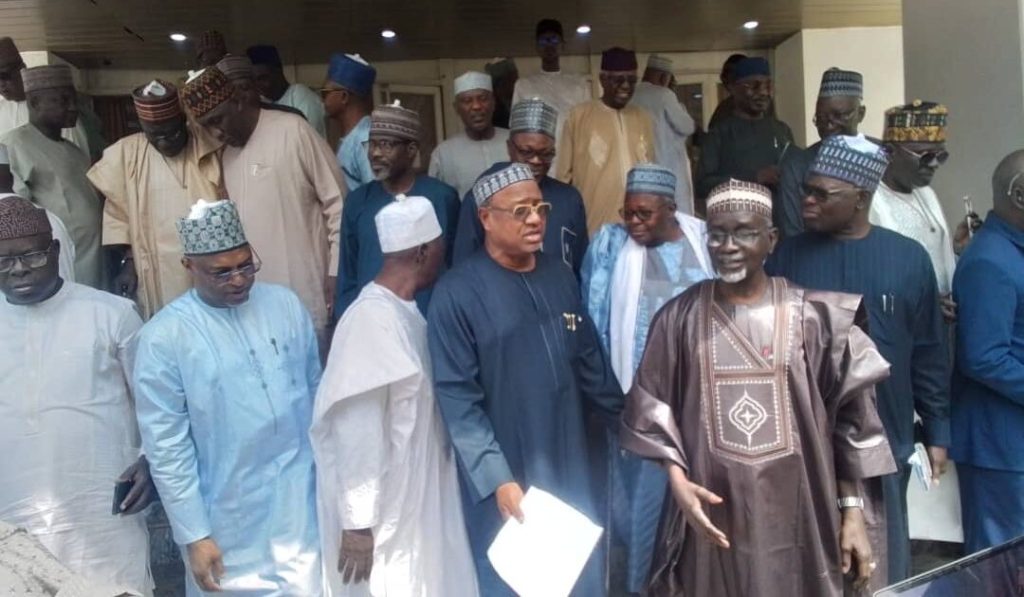The formation of a potent political coalition aimed at influencing the 2027 political landscape in Nigeria is underway, with key figures like former Vice President Atiku Abubakar, former Kaduna State Governor Nasir El-Rufai, and other prominent opposition figures at the helm. The coalition has entrusted the critical decision of whether to establish a new political party or merge with an existing one to two former governors: Rotimi Amaechi of Rivers State and Liyel Imoke of Cross River State. Amaechi chairs the committee exploring the formation of a new party, while Imoke leads the committee examining the feasibility of merging with an existing platform. The League of Northern Democrats (LND), a prominent group within the coalition, has publicly affirmed its support for the coalition’s objectives, adding further weight to the burgeoning political movement.
The coalition’s strategic deliberations are reaching a crucial juncture, with a final decision on the party platform expected by May 30th. The coalition’s decision-making process is carefully weighing the advantages and disadvantages of both options. Creating a new party offers the opportunity to build a political organization from the ground up, tailored to the coalition’s specific vision and values. However, it also presents the challenge of establishing name recognition, building a grassroots network, and securing funding, all within a limited timeframe. Merging with an existing party offers a more established infrastructure and potential voter base, but could involve compromising on some of the coalition’s ideals and navigating existing power dynamics within the chosen party.
The coalition is currently considering two existing parties, the Action Democratic Congress (ADC) and the Social Democratic Party (SDP), as potential platforms should the decision be made against forming a new party. The SDP’s expressed interest in joining forces with the coalition has added another layer of complexity to the deliberations. Each existing party presents its own set of advantages and disadvantages, and the coalition must meticulously assess which, if any, align with their long-term goals. The ongoing discussions and impending decision highlight the delicate balancing act the coalition must perform as it seeks to solidify its presence in the Nigerian political arena.
Beyond the immediate task of establishing a political platform, the coalition is deeply concerned about the socio-economic challenges plaguing Northern Nigeria. The LND has expressed alarm over the pervasive poverty, destitution, insecurity, and unemployment that afflict the region. The coalition has placed the blame squarely on the perceived inaction of the 19 northern governors, accusing them of inertia in addressing these pressing issues. This critique underscores the coalition’s intention to not only participate in elections but also to actively engage with government officials and hold them accountable for their performance.
The coalition plans to engage the northern governors and mobilize the wider Nigerian population to pressure legislators to uphold and protect the country’s constitution. This signals the coalition’s ambition to become a powerful force for political reform and accountability, extending beyond electoral politics to influence policy and governance. The focus on constitutional adherence underscores a commitment to the rule of law and a desire to strengthen democratic institutions in Nigeria.
In essence, the emerging coalition represents a potentially significant development in Nigerian politics. Its deliberations on party platforms, coupled with its focus on addressing critical societal challenges and upholding the constitution, suggest a broader agenda than simply contesting elections. The coalition’s ultimate success will depend on its ability to navigate the complexities of party politics, mobilize public support, and translate its vision into tangible improvements for the Nigerian people, especially in the beleaguered northern region. The coming months will be crucial in determining the coalition’s trajectory and its potential to reshape the political landscape leading up to the 2027 elections and beyond.


